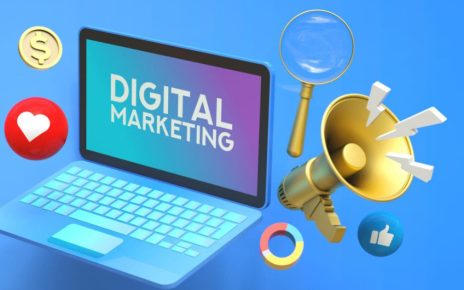Electronic commerce has greatly changed how companies engage consumers in the sale of their products and services. It becomes clear that digital marketing is steadily occupying a larger share of many industries as technology intensifies its progress. It is important for companies to grasp this effect to conform to current trends in marketing and reach their target consumer base online.
The Emergence of Digital Marketing
It was just two decades back that print media, radio, and TV commercials were the primary methods of reaching the consumer. Even though all these formats can be applied to contemporary advertising, the Internet has stimulated the effective development of Internet marketing strategies. Communication tools such as web search, social networks, e-mail, and web sites have revolutionized the way brands operate and interact with their audiences.
Digital marketing refers to any promotional strategy executed on digital media that utilizes web, mobile devices, adverts, and any other form of internet media. Unlike traditional marketing which is mostly in the form of an advertisement between the brand and consumers, digital marketing is a two-way process. The direct engagement with the customers and even listening to them has assisted in enhancing the marketing personalization to the next level.
Most Consider it Necessary Today
Digital marketing is now essential to all sectors as it is now an era where the audience is tech-savvy and the world is rapidly digitalizing. The smart use of digital solutions can expand the audience, enhance branding, grow sales, and grow companies’ operations. This means that even the companies that chiefly focus on offline sales stand to gain a great deal from having an online presence and engaging in practices that support branding initiatives.
Thus, 50 – 75% of total marketing budgets are spent on digital initiatives at the present time. Thus, as part of their strategic marketing communication, more small, medium and large companies see digital marketing as a mandatory tool to achieve and maintain competitive advantage. It is evident that most companies are in need of assistance from digital marketing agencies and professionals to unlock their online growth.
Driving Real Business Value
Digital marketing success today is not about driving traffic to company websites, followers, and likes or comments on social platforms. However, contemporary marketers strive to show practical business benefits that stem from their marketing strategies. Indicators such as revenue growth rates, CLV, cost savings, and ROI show how digital strategies contribute to corporate objectives and profitability.
Google Analytics is one such platform that enables marketers to monitor relevant KPIs and position the campaigns’ data for better optimization. When aimed at achieving specific organizational goals and being based on data, digital marketing has the potential to significantly boost online performance. It enables brands to enhance their website conversions, raise average order value, generate more targeted leads, and attract returning customers.
Customer-First Approach
The traditional one way communication model where brands were key communicators and the audience was the receiver has changed. Digital marketing places the customer at the center of every plan and campaign. Understanding a buyer’s online footprints, continuous communication across channel touch points and the content they prefer as per their liking makes it possible to offer targeted personalization.
A customer-centric, individualized strategy cultivates audience trust and engagement better than product-centric mainstream approaches. This indicates that brands appreciate their customers as special persons with special needs. Personalized digital communication encourages consumers to begin and continue to engage in business with brands that know them well.
Data-Driven Decision Making
Digital channels are measurable, which means that there are tangible results that show how marketing campaigns fare. Metrics demonstrate who reads or skips content, what compels them to buy or bounce, when demand peeks, and much more. These indicators were not in the traditional forms.
Performance data analysis provides digital marketers with relevant information about the customers and competitors. Defining what motivates the right behaviors or which activities create issues means that resources are used more effectively and efficiently. This shows that in the long run, the strategies employed when winning can be identified and duplicated for further use and the nonproductive tactics can be discarded for enhanced cost and time saving.
Rapid Testing at Scale
Digital marketing provides the opportunity to employ the test and learn approach that was not easily possible earlier. The integration of quantitative data and low-cost campaigns allows for experimenting with different messaging, advertising formats, content, media channels, target demographics, and others at the same time. Simultaneously, the running of several experiments enables the determination of the proper online promotion techniques and the pace at which they have to be implemented for each brand.
Examinations that show that high performing messages can be rapidly spread across digital channels to enhance their effectiveness. This allows marketers more freedom when it comes to tweaking aspects or even changing the course altogether based on new information obtained the following morning. The effectiveness of digital marketing increases through continually optimizing and innovating based on the learnings that are made. Hence the ability to pivot at scale to capture new opportunities continues to be a strength especially within the digital domain.
In Conclusion
While digital marketing’s importance and strategic applications keep on growing in various industries, organizations must unlock all its opportunities to deliver tangible business value. Digital marketing must cease to be treated as an additional extra or an auxiliary function and be embedded further into the brands’ main activities. An effective and flexible digital marketing approach that is in congruence with the key objectives will be crucial for future success.




